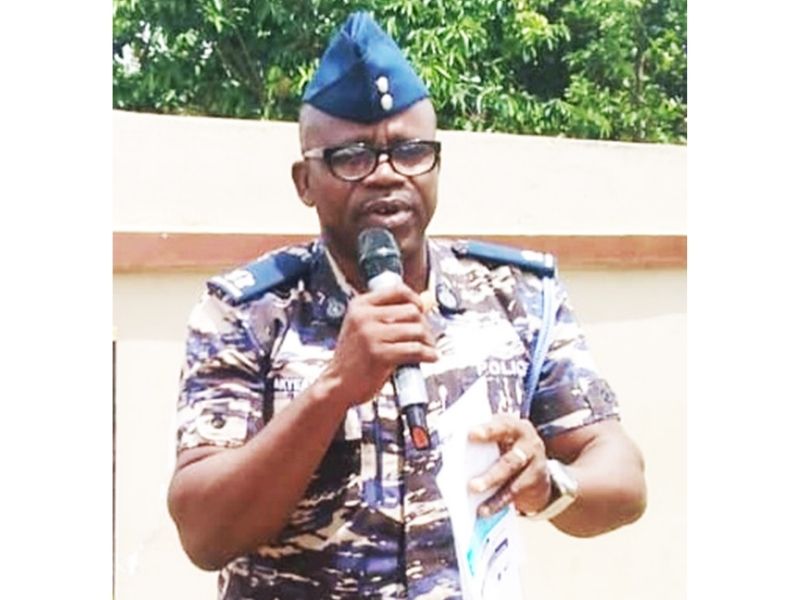Supt. Kaakyire Owoahene Achampong, Asokwa Municipal Police Commander, has expressed worry over the discussion of marital issues and private life of couples in the air waves in the name of public interest.
The Police Chief’s worry stems from the fact that most of these radio stations are unable to amicably resolve the numerous marital problems they expose and make public on a daily basis without restraint and caution. “Eventually they (radio stations) start exposing what they cannot resolve, thus breaking homes,” the Commander pointed out.
According to him, most of the radio stations end up making mockery of the couples who they pretend to be helping to resolve issues, and attributed the many cases of divorce and broken homes to this emerging trend and development.
Speaking at a Public Education forum on the Ghana Case Tracking System and use of Alternative Dispute Resolution (ADR), organised by the Commonwealth Human Rights Initiative (CHRI) Africa Office (an implementing partner of USAID Justice Sector Support Activity), in collaboration with the Muslim Family Counselling Services (MFCS) and the Asokwa Municipal Assembly, Supt. Achampong disclosed that most of these couples would use any abusive and unpredictable words against each other and expose their private lives in the public domain on the radio.
He noted that most of the couples later regret their actions and deeds and may want to come back to live together, but things might have got out of hand – beyond settlement. The Police Commander expressed the view that married issues and differences among couples were supposed to be resolved and settled by only the family members who were involved in the marriage rites and should not be on radio, and suggested that if possible, they should seek amicable settlement from Alternative Dispute Resolution (ADR), instead of exposing their privacy in the media, thus make things worse rather than resolving their differences.
Supt. Kaakyere Owoahene Achampong also sensitised on the human rights issues, cautioning the public to know their rights to avoid abusing their right to life, right to freedom and privacy, and ensure that we are equal before the law, irrespective of one’s status in society.
He further pleaded with Nananom (chiefs) to stop the act of double sales of land to different people to mitigate litigations.
Mr. Tijani Mahmoud, Programme Manager, stated that, in 2019, Ghana launched the first electronic Integrated Criminal Justice Case-Tracking System, and the success of the CTS required citizens’ involvement and their demand for utilisation of the ADR for resolving cases by justice sector institutions.
He explained that the education aims at advocating the effective utilisation of the system and thus increase citizens’ awareness and understanding on the Case Tracking System (CTS) and encourage the Commonwealth Human Rights Initiative (CHRI), Africa Office (an implementing partner of electronically access) and back the various stages of criminal cases from the point of arrest.
He underscored that (CTS) project is to support key stakeholders in the justice delivery system to collect, collate and harmonise statistical data for effective justice delivery.
Mr. Dickson Frimpong, the Asokwa Municipal Director of Social Welfare, stated that, the Alternative Dispute Resolution (ADR) is common to the people in the communities which they are applying without appreciating it, and for that matter, they are scaling up the sensitisation to reach out to the people in the communities to channel their cases.
He disclosed that, the Municipality receives a number of cases with regard to custody and maintenance and is able to educate their people and encouraged members of the public to seek for ADR, because the court process is huge and takes a lot of time and cost the poor people saying the ADR is the best option.
He mentioned some of the cases that could be addressed through ADR as family-related issues, including child paternity and maintenance issues, divorce cases, inheritance and property sharing issues, impasse between Landlord and tenants, insurance issues, Employer and employee issues, Debt recovery issues and others.










